Top 19 Heart-Healthy Foods You Must Include in Your Diet!
These foods can help lower cholesterol, reduce inflammation, regulate blood pressure, and support overall heart health when incorporated into a balanced diet.
- Apple

Researchers have found that consuming apples can help lower inflammation, increase lipid metabolism, reduce weight, and regulate blood pressure. So, have an apple every day to keep your heart fit. Include apples in your breakfast cereal or smoothies. You can also have an apple as a mid-morning or evening snack. Add a few pieces of apple to your salad to give it an exotic flavor
2. Strawberries

Strawberries are rich in antioxidants that help to lower high blood pressure and blood lipid levels, prevent hyperglycemia, and decrease the LDL cholesterol and triglyceride levels. These attributes make strawberries one of the most potent foods to prevent cardiovascular disease. Include strawberries in your breakfast cereal or smoothies or have them with other fruits a couple of hours after lunch. You can also have strawberries with yogurt or sour cream as dessert.
3. Asparagus
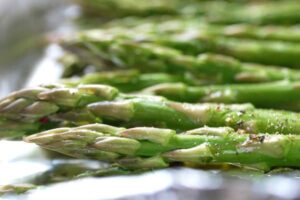
Asparagus contains steroidal saponin that helps to reduce the cholesterol levels. It also has antioxidant properties that act against atherosclerosis and other cardiovascular diseases. Make sure not to discard the section near the roots because all the heart-protective nutrients are concentrated in that part. You can blanch, grill or stir-fry asparagus and have it along with veggies and a source of lean protein. You can also make asparagus juices. You can safely have a cup of asparagus or 7-8 asparagus tips per day.
4. Watermelon

Citrulline is one of the compounds found in watermelons that helps to decrease inflammation and arterial stiffness, lower LDL cholesterol and elevated blood pressure, and reduce body weight. Have watermelon juice or smoothie for breakfast. You can also have a bowl of watermelon as an evening snack. Do not eat more than 1 ½ cups of watermelon in a day to avoid stomach upset.
5. Beetroot
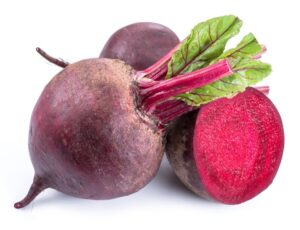
Beetroot is a great source of nitrate that helps to reduce inflammation. It also has antioxidant properties and helps to reduce cholesterol and high blood pressure and improve lipid profiles. Have beetroot juice or raw beetroot as an evening snack. You can also toss beetroot into your chicken stew or vegetable soup. Have half a cup of beetroot every day for better heart health and improved overall health.
6. Dark Chocolate

Dark chocolate is a rich source of catechins, theobromine, and procyanidins that prevent platelet aggregation, lower blood pressure, and improve endothelial function. Hence, having a piece of dark chocolate will help protect your heart from cardiovascular diseases. Consume dark chocolate that contains 80% or more cocoa. Have a piece after dinner to satiate your sweet tooth without risking weight gain or any harm to your health.
7. Nuts

Consuming nuts can help reduce the risk of cardiovascular disease by 40-50%. Nuts contain vitamin E and monounsaturated fats that act as antioxidants and anti-inflammatory agents. Researchers have found that consuming almonds, in-shell pistachios, walnuts, pecan nuts, and peanuts can help reduce LDL cholesterol. You can have nuts in the morning with your breakfast so that you can use the energy generated to carry out your daily activities. You can also toss a few nuts into your salad or eat them as a snack in the evening with a cup of green tea.
8. Broccoli

Broccoli is a cruciferous vegetable that is loaded with vitamins A, C, K, and folate, dietary fiber, calcium, magnesium, potassium, phosphorus, omega-3 and omega-6 fatty acids, selenium, and glucosinolates. Researchers found that broccoli-fed rats had improved heart function, reduced myocardial infarction, and increased antioxidant response that helped protect the heart. Have blanched, grilled, baked or stir-fried broccoli with other veggies or mushroom/chicken/fish/lentils. You can also have it in a soup to satiate your hunger and keep your heart healthy. Have one cup of broccoli per day.
9. Fish

Fish are rich in lean protein and omega-3 fatty acids. Omega-3s are polyunsaturated fatty acids that help to reduce inflammation and prevent cardiovascular diseases. Both omega-3 and omega-6 fatty acids are essential. However, our dietary intake does not fulfill the body’s requirement of omega-3s. So, consume salmon, sardine, and other fatty fish to improve your heart’s condition. You can have grilled or baked fish for lunch or dinner. Make sure to use light dressing if you have fish in your salad. You may consume 3-5 oz of fish per day.
10. Carrot
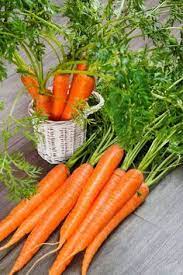
Carrots are rich in vitamins A, K, E, and folate and minerals such as calcium, magnesium, potassium, and phosphorus. Interestingly, they are also a good source of antioxidants that prevent DNA damage, reduce inflammation, and lower the cholesterol and triglyceride levels. You can snack on a raw carrot. Grill/bake/stir-fry it and have it with other veggies with a source of lean protein (fish/chicken/mushroom) or add it to chicken stew or vegetable soup. Make sure not to overeat carrots to avoid health issues. You can have half a cup of carrot per day.
11. Chicken Breast

Chicken breast without the skin is a great source of lean protein. Proteins are the building blocks of muscles. Since heart works 24*7, it is quite natural that there is muscle wear and tear. Consuming chicken breast will supply the body with protein that can be used to repair the heart muscles. Have 3-4 oz of chicken breast per day. You can grill, poach, bake, boil or stir-fry chicken and have it with lots of green leafy and other colorful veggies to balance your meal.
12. Blueberries

Blueberries are rich in a cardioprotective polyphenol called resveratrol. Resveratrol helps prevent cardiac heart failure, has anti-thrombolytic properties, and helps repair any damage caused to the heart morphology. Add blueberries to your smoothie or breakfast cereal along with nuts to give it a rich flavor. You can have up to half a cup of blueberries per day.
13. Green Tea

Green tea contains active polyphenolic compounds called catechins. They have antioxidant, anti-inflammatory, anticancer, antihypertensive, lipid-lowering, and anti-thrombogenic properties. The catechins help scavenge the harmful oxygen radicals, prevent vascular inflammation, reduce the risk of atherogenesis, and inhibit lipid synthesis and absorption. Have 2-3 cups of green tea per day. You may have it in the morning or 20 minutes before lunch or dinner. Add cinnamon, lemon, honey, tulsi, or other herbs to make your own flavored green tea.
14. Olive oil
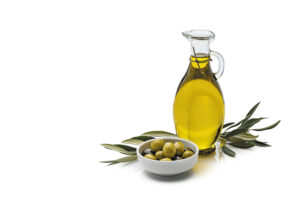
Olive oil is widely used in various cuisines these days. It is rich in antioxidants and healthy fats and has anti-inflammatory properties. Olive oil consumption has been found to reduce the risk of myocardial infarction, stroke, and cardiovascular disease. Use olive oil to stir-fry veggies or lean protein sources. Make a light dressing for salads with olive oil, lime juice, herbs, salt, and pepper. You can safely consume 7-8 tablespoons of olive oil per day.
15. Kale

Rich in vitamins A, C, K, folate, calcium, magnesium, phosphorus, omega-3-fats, dietary fiber, and antioxidants, kale helps to reduce the risk of coronary artery disease. You can have kale smoothie for breakfast. You can also add kale to your salad, but make sure to blanch it. Add black pepper, salt, lime, and flax seed powder along with veggies and a medium portion of protein source to make your kale salad exciting and tasty.
16. Pomegranate Juice or Fruit
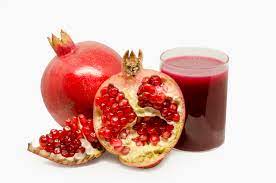
Pomegranate is loaded with anthocyanins and tannins that possess antioxidant properties. This makes it a potent cardioprotective fruit. It helps to lower LDL cholesterol and blood pressure and reduce inflammation. Have pomegranate juice or the fruit for breakfast or as an evening snack. You can also add it to your salad for a Mediterranean touch.
17. Oranges or a Glass of Orange Juice

Oranges are rich in vitamin C, minerals, flavonoids, and have anti-inflammatory, lipid-lowering, antiallergic, and anti-tumor properties. Scientists have found that consuming orange juice can help lower bad cholesterol (LDL cholesterol) levels. The lower the LDL cholesterol, the lower the chances of arterial blockage. Have an orange or a glass of freshly pressed orange juice to keep your heart healthy. You can also add orange juice to desserts, salads or chicken to give them a delicious flavor and aroma.
18. Spinach

Spinach is loaded with dietary nitrate that helps to lower blood pressure, improve exercise performance in people with peripheral arterial disease, inhibit platelet aggregation, and reduce inflammation and arterial stiffness. Have blanched, baked, stir-fried or boiled spinach in salads, soups, and smoothies to keep your heart healthy. You can have 1-1 ½ cups of spinach per day.
19. Avocado

Avocados are rich in healthy fats, vitamins A, E, K, C, B6, folate, pantothenic acid, niacin, potassium, magnesium, sodium, phytosterols, riboflavin, and other phytonutrients. They reduce bad cholesterol, lower blood lipid levels, improve antioxidant activities, suppress inflammation, and normalize blood glucose levels, thereby reducing the risk of heart diseases. You can have an avocado smoothie for breakfast or include it in salads or wraps for lunch.
Start taking care of your heart health by including these heart-friendly foods in your diet. Also, make sure to workout regularly to strengthen your heart muscles.
Read more
Contents
The Crucial Role of Balanced Diet in Healthy Weight Loss
6 causes of belly fat accumulation you should know
Does the Golo Diet really help lose weight effectively?
What do you know about weight loss pills?


Pingback: 11 Vegetables to Help Support Your Weight Loss Healthtop.net
Pingback: 10 Foods That Help You Gain Muscle You Should Know! -
Pingback: The Benefits of Exercise for Weight Loss You Need to Know -